Rosemary is a tasty herb from the Mediterranean that people use in cooking, like in chicken and lamb dishes. It’s not just delicious – it’s also got some health benefits. Some think it helps with muscle pain, memory, and boosts the immune system. But, be careful if you’re taking certain medicines because rosemary might not mix well with them.
What Is Rosemary?

Rosemary is a plant that stays alive for a long time, and it comes from the Mediterranean. Its fancy name is Rosmarinus officinalis, but you can just call it rosemary. It’s part of the mint family and has pointy leaves on woody stems. The leaves smell nice and stay green all the time. People like to use rosemary in cooking and as a decoration. It has this special smell because of the oil in its dark green leaves.
Can You Dry Rosemary?
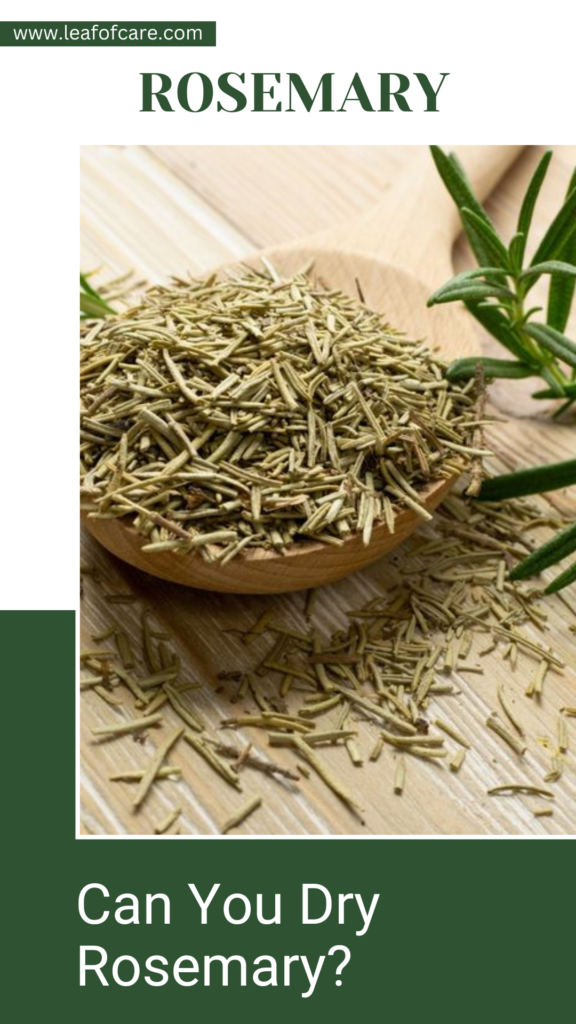
Fresh rosemary stays good in the fridge for about two weeks, but if you dry it, it can last up to a whole year. When you dry rosemary, it won’t be as strong as the fresh one, but it’s a good way to keep it for a long time. You can sprinkle dried rosemary on meats and veggies or use it to add flavour to bread and pastries.
4 Ways to Dry Rosemary
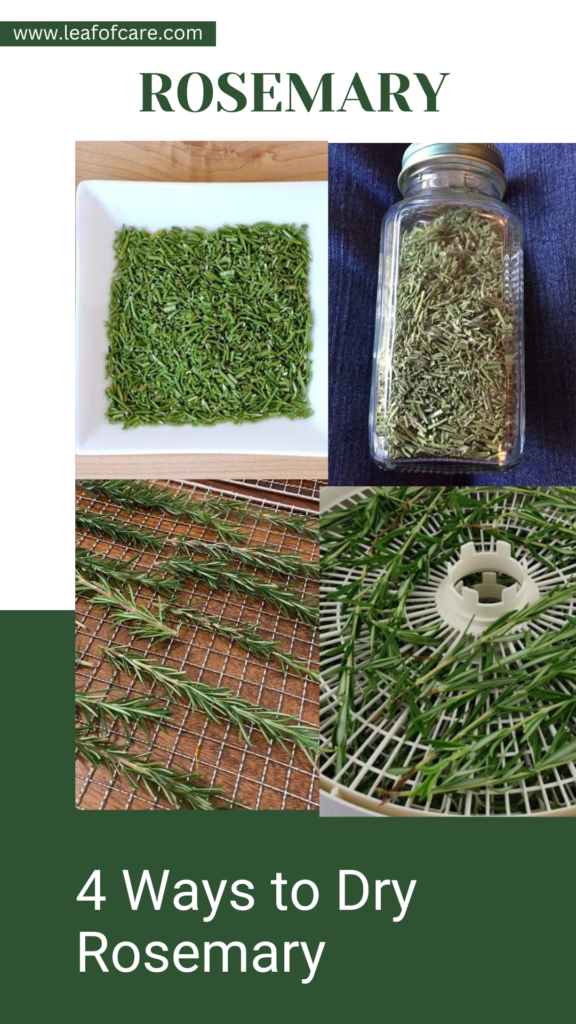
- Air-dry
- Microwave drying
- Oven drying
- Food dehydrator
How to Store Fresh Rosemary
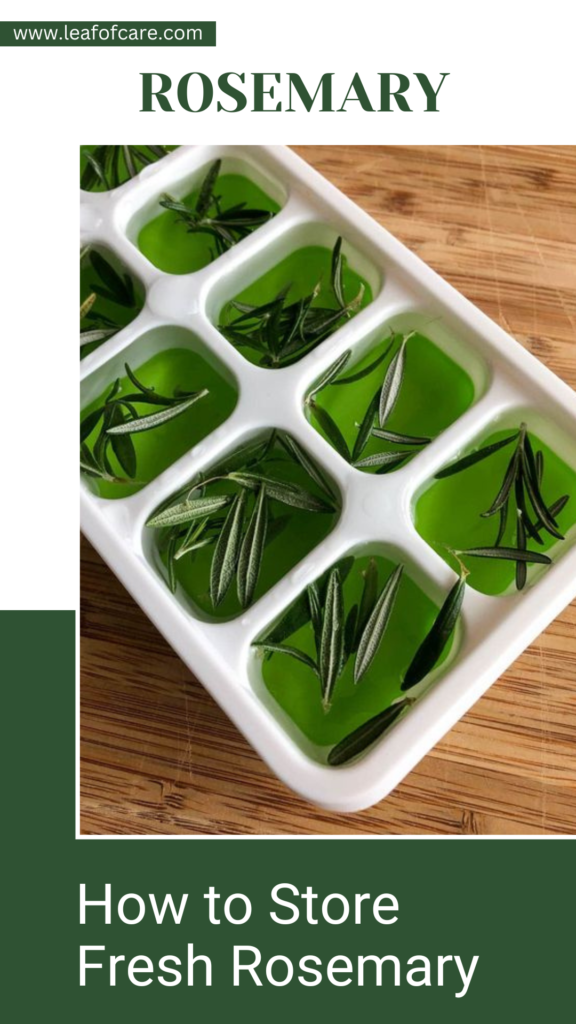
Whether you acquire fresh rosemary from the store or harvest it from your garden, it’s unlikely that you’ll use the entire bunch in a single meal. Here are three methods for storing freshly harvested rosemary:
Refrigerator
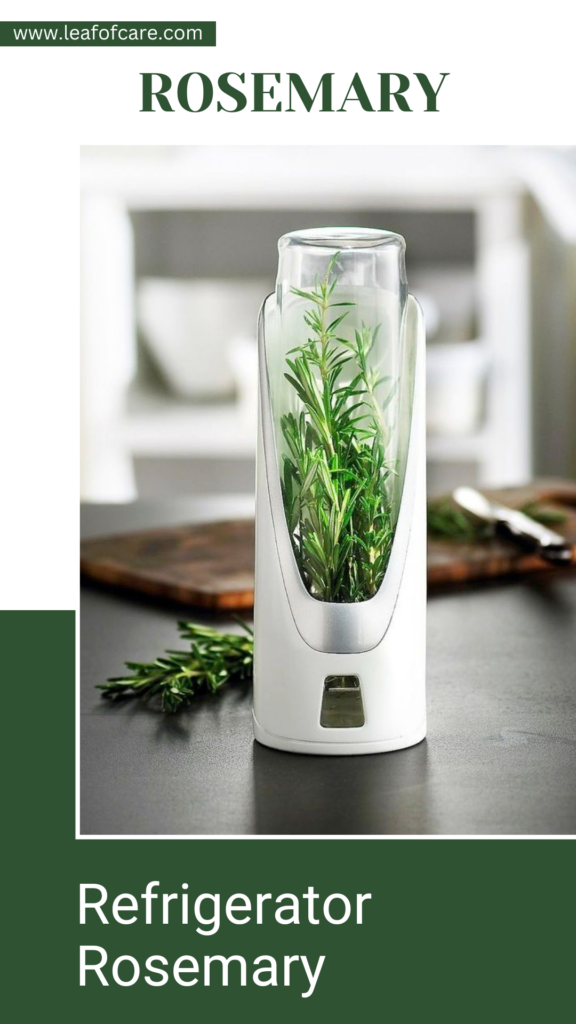
If you want your fresh rosemary to last longer in the fridge, here’s an easy way: wet a paper towel, lay your rosemary on it, and wrap them up together. Then, just pop the wrapped rosemary into a bag or container that closes tight, and stash it in the fridge. That should keep it fresh for about two weeks.
Freezer
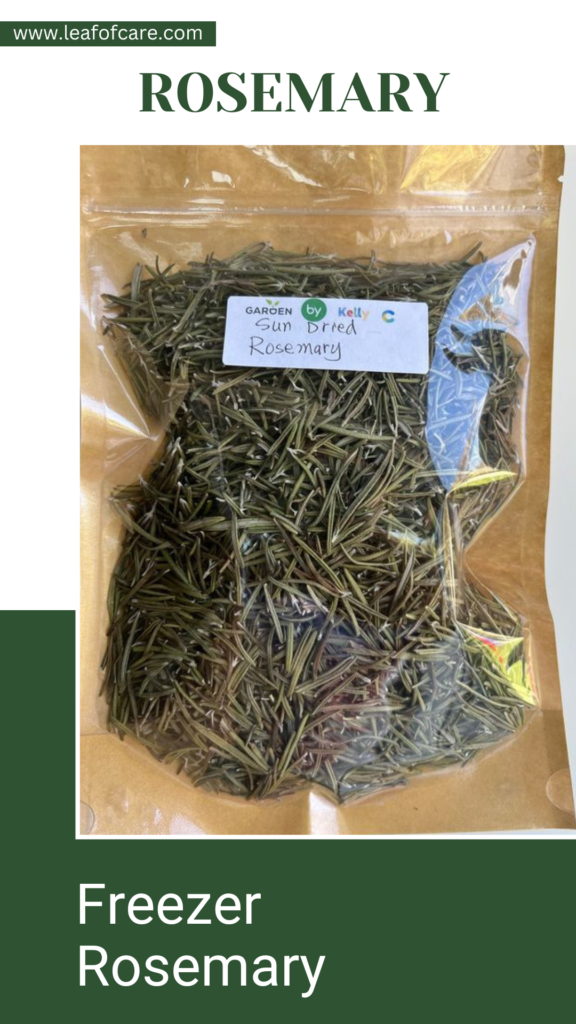
If you’ve got some rosemary and want to keep it for later, freezing is the way to go. Just throw those sprigs into a bag or container, squeeze out the air, and freeze it. You can also freeze the leaves in ice cubes with water or olive oil. To prevent them from sticking together, try flash-freezing. Lay them on a tray in the freezer for an hour or two until they’re solid, then transfer to a sealed container or bag. When you’re cooking, grab some frozen rosemary to add a burst of flavour to your marinades and stews. Easy peasy!
Drying
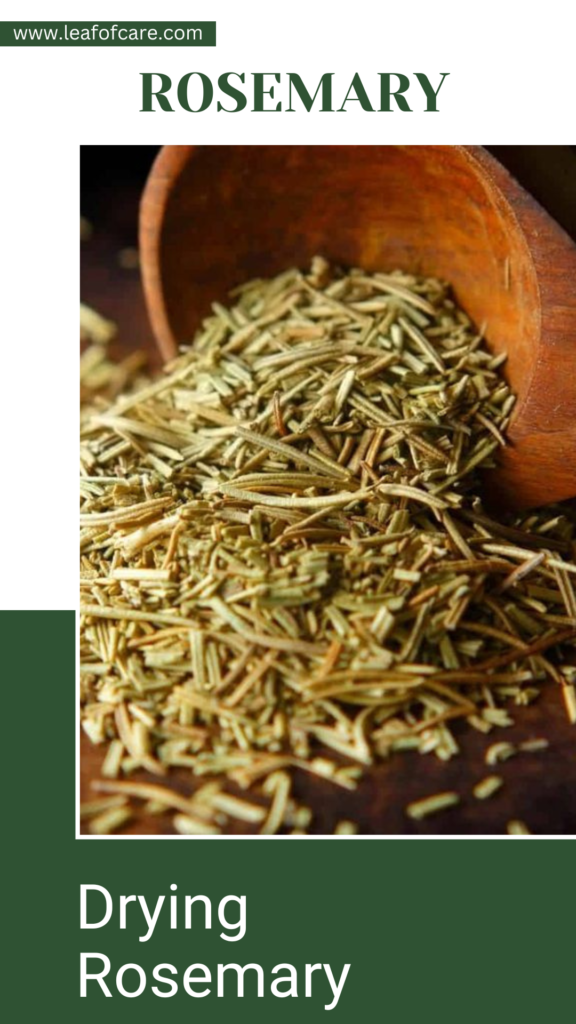
Drying rosemary for your recipes is super easy! Tie the sprigs together with twine and hang them in a warm, dry place away from sunlight. Or, if you’re in a rush, use the oven on its lowest setting or a dehydrator to get rid of all the moisture. Piece of cake!
How to Store Dry Rosemary
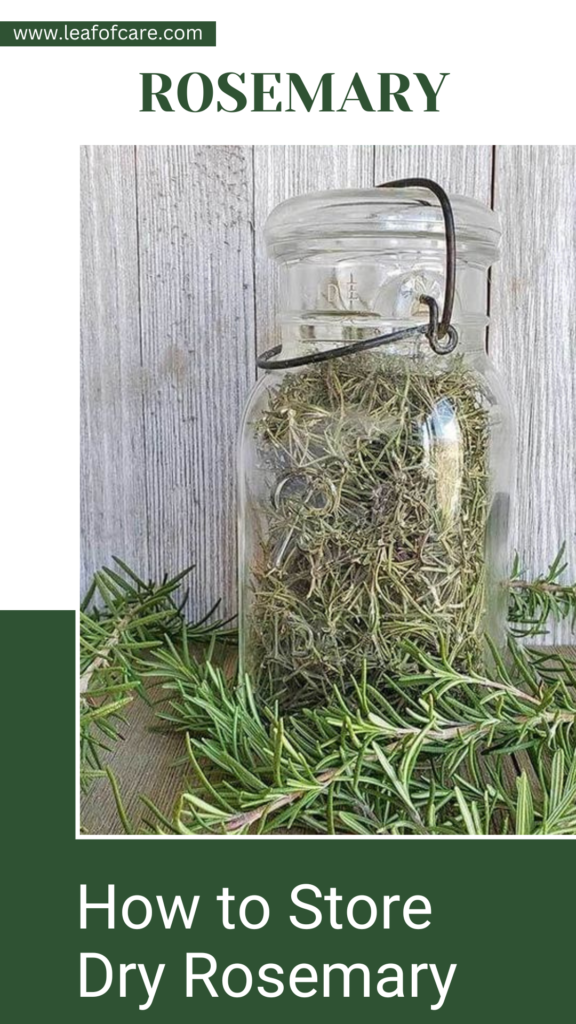
Dried rosemary can stick around for about a year, but keep in mind that its flavor and strength fade over time. To store it right, follow these steps:
Remove the leaves
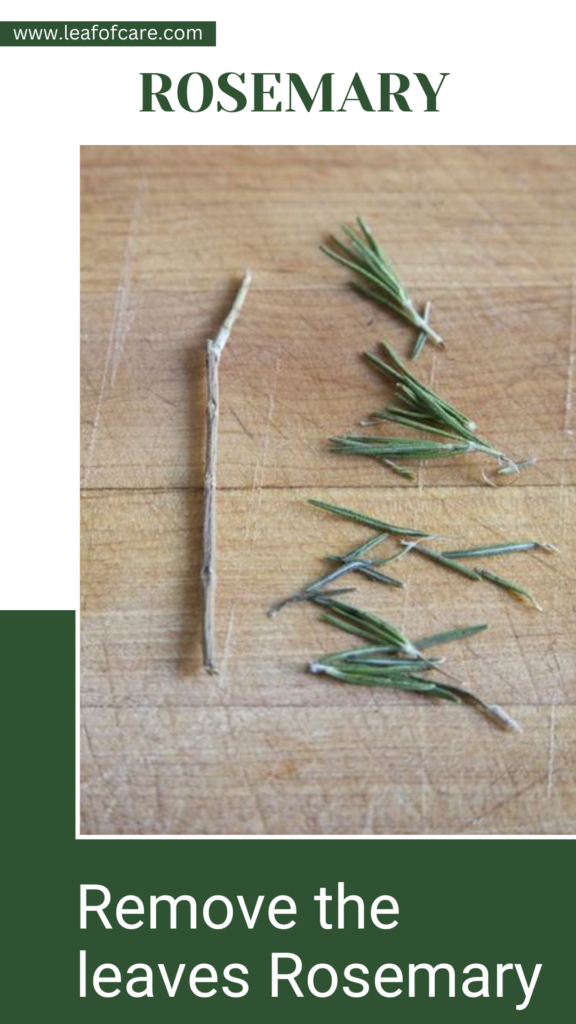
Remove the rosemary leaves from the stems, then discard the rosemary stems.
Keep the leaves intact
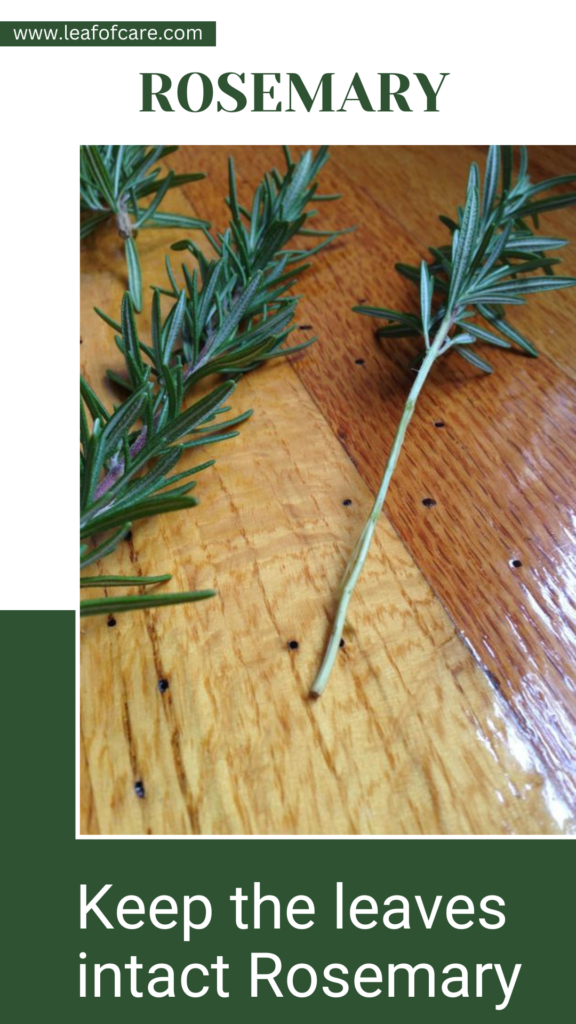
Keep the leaves whole until you need to use them, since crushing the rosemary will cause them to lose their flavour faster.
Place the rosemary in a dark, dry place

Store the leaves in an airtight container, like a glass jar, in the spice cabinet or a dark, dry place.
Benefits
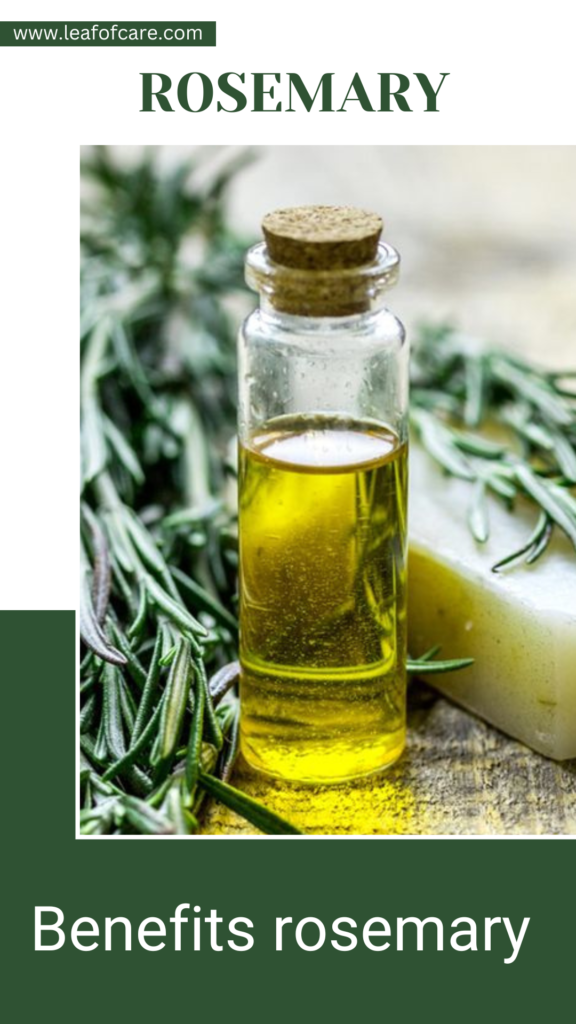
Rosemary has a range of possible health benefits.
- Antioxidants and anti-inflammatory compounds
- Improving digestion
- Enhancing memory and concentration
- Neurological protection
- Prevent brain ageing
- Cancer
- Protection against macular degeneration
Medical uses

Rosemary can affect the activity of some medications, including:
- Anticoagulant drugs
These include blood-thinning medications, such as Warfarin, Aspirin, and Clopidogrel.
- ACE inhibitors
These are used for treating high blood pressure. They include lisinopril (Zestril), fosinopril (Monopril), captopril (Capoten), and enalapril (Vasotec).
- Diuretics
These increase the passing of urine and include hydrochlorothiazide and furosemide (Lasix).
- Lithium
This is used to treat the manic episodes of manic depression. Rosemary can act as a diuretic and cause lithium to reach toxic levels in the body.
Conclusion
Discover the wonders of rosemary leaves! From spicing up your dishes to boosting your health, this herb is a game-changer. Dive into its rich history, and find out how it can add both flavor and wellness to your life. Whether you’re a foodie or into natural remedies, embracing rosemary leaves is an aromatic journey worth taking.
